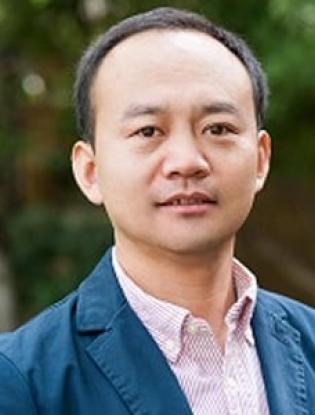Currently, two major projects are carried out in my laboratory:
1. To study the biology of R loops and its interplay with epigenetic pathways
Transcription-mediated R-loop formation occurs when the nascent RNA transcript anneals back to the template DNA strand in the wake of RNAP II. R-loops form there owing to the presence of a negatively supercoiled region behind RNAP II and to the fact that RNA/DNA hybrids, particularly those formed by G-rich RNAs base-paired to C-rich DNA templates, are more stable than double stranded DNA. The biological roles of R loops include 1) initiate double-strand DNA breaks and trigger class switch recombination at the IgH locus; 2) protect from DNA methylation at the 5’-UTR; 3) mediate efficient transcription termination at the 3’-UTR; 4) impede the progression of elongating RNAP II; and 5) cause genomic instability. We focus on studying the factors, and epigenetic pathways, that tightly control the balance between beneficiary and deleterious effects of R loops. We recently found that protein arginine methyltransferases (PRMTs), especially PRMT1 and CARM1, function as transcriptional coactivators in vivo by depositing methyl-marks (H4R3me2a and H3R17me2a) that recruit the TDRD3-TOP3B protein complex to dampen R-loop formation at sites actively undergoing transcription.
2. To investigate the biological roles of protein arginine methyltransferase (PRMTs) using genetically engineered mouse models
Protein arginine methylation is catalyzed by a group of enzymes named protein arginine methyltransferases (PRMTs). There are nine PRMTs encoded in mammalian genomes, the protein products of which catalyze three types of arginine methylation, namely monomethylation, asymmetrical dimethylation and symmetrical dimethylation. PRMTs are involved in every aspect of cellular processes including transcription, pre-RNA splicing, DNA damage repair, etc. Although overexpression of these enzymes is often associated with various cancers, the oncogenic pathways that PRMTs are involved in have not yet been clearly identified. Our research in this direction focuses on studying the regulation of DNA repair pathways by arginine methylation, which is largely uncharacterized. We are using in vitro biochemistry assays, reporter cell lines, gene knockout and gain-of-function mouse models to investigate the roles of PRMTs in DNA damage repair. Through identification of the potential oncogenic pathways, we aim to provide implications for therapeutic strategies. Furthermore, we recently characterized a novel PRMT, PRMT9, which catalyzes symmetrical dimethylation on protein substrates. PRMT9 has clear roles in regulation of alternative splicing. We are currently in the process of generating Prmt9 gene knockout mice to unmask the biological roles of this new enzyme.
